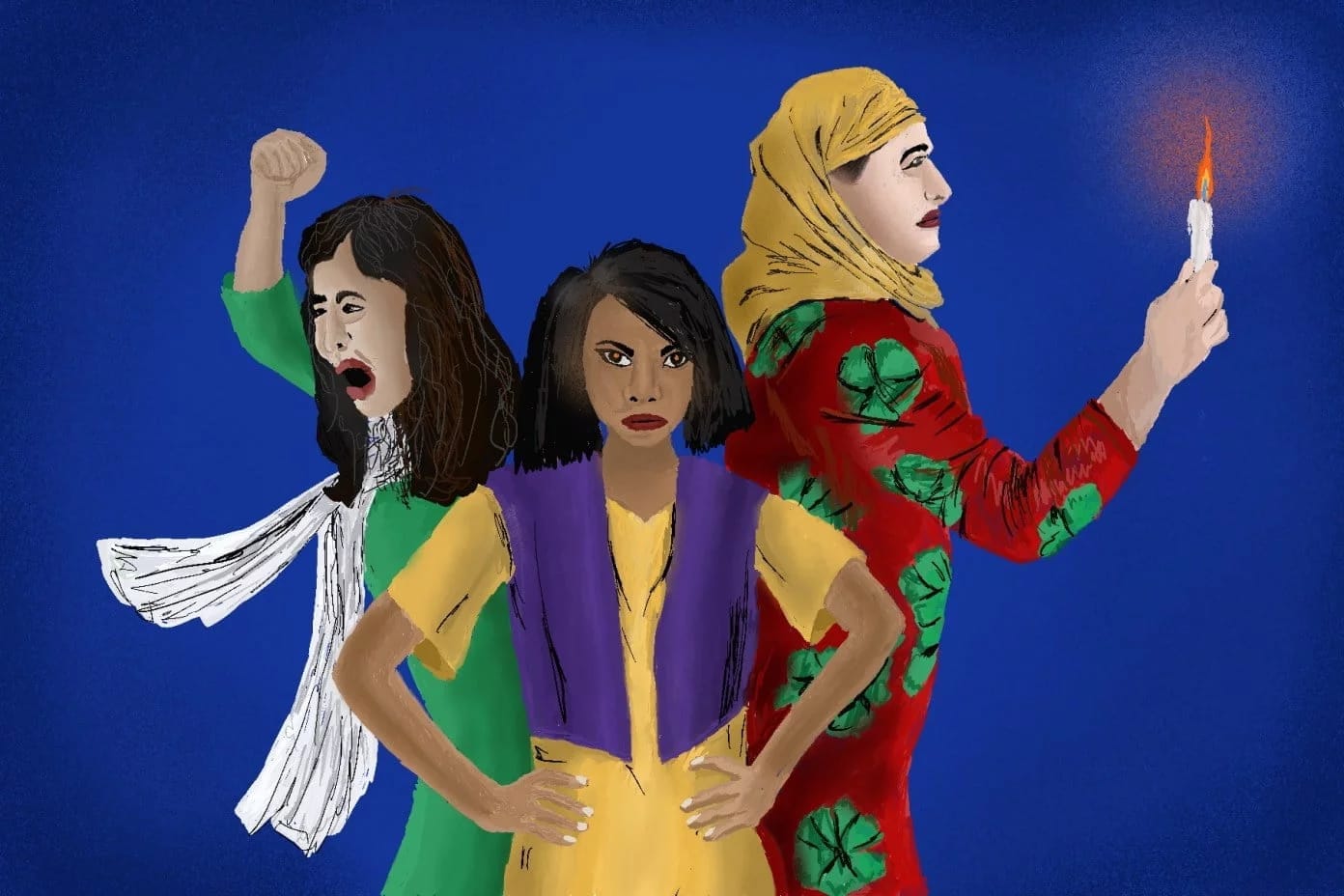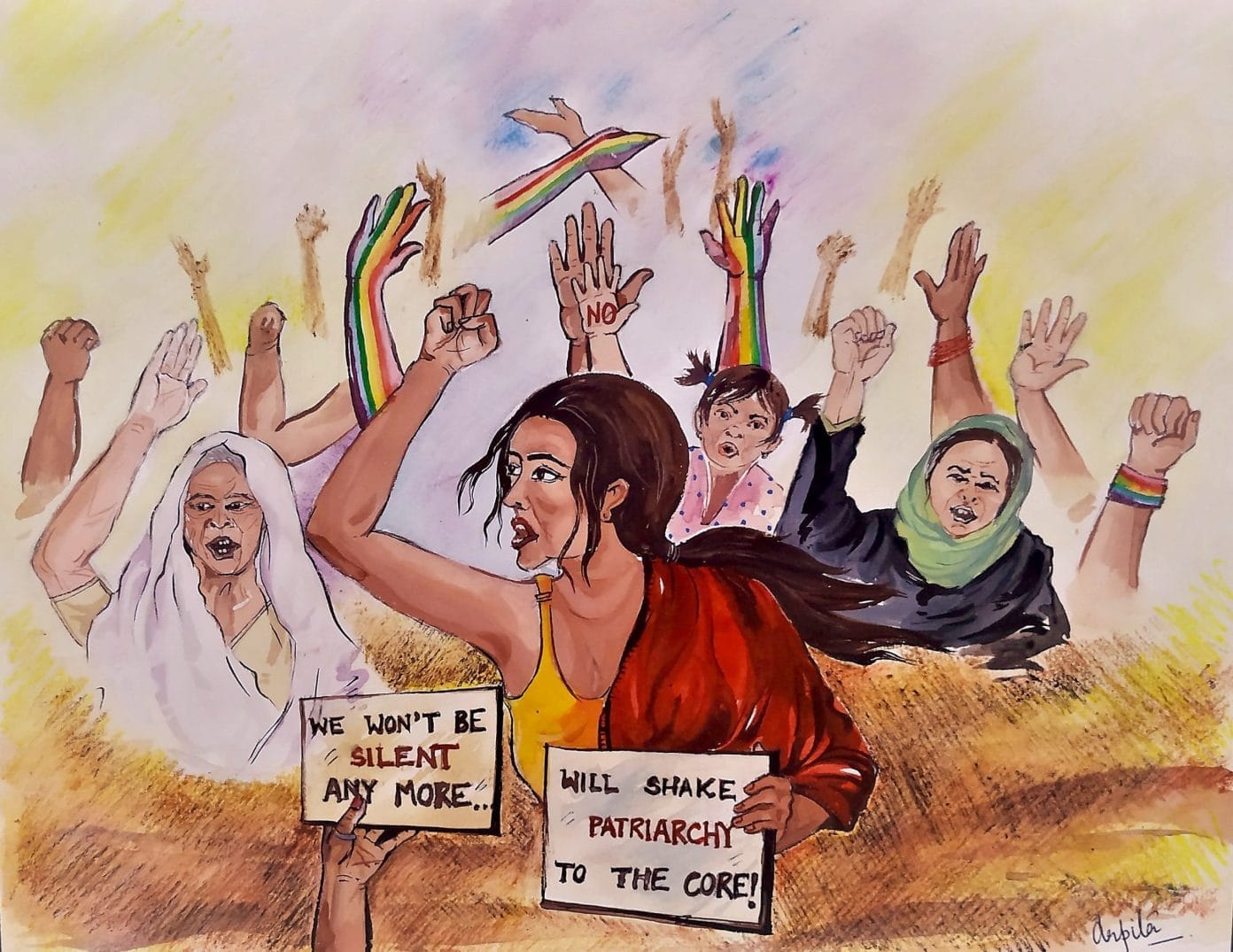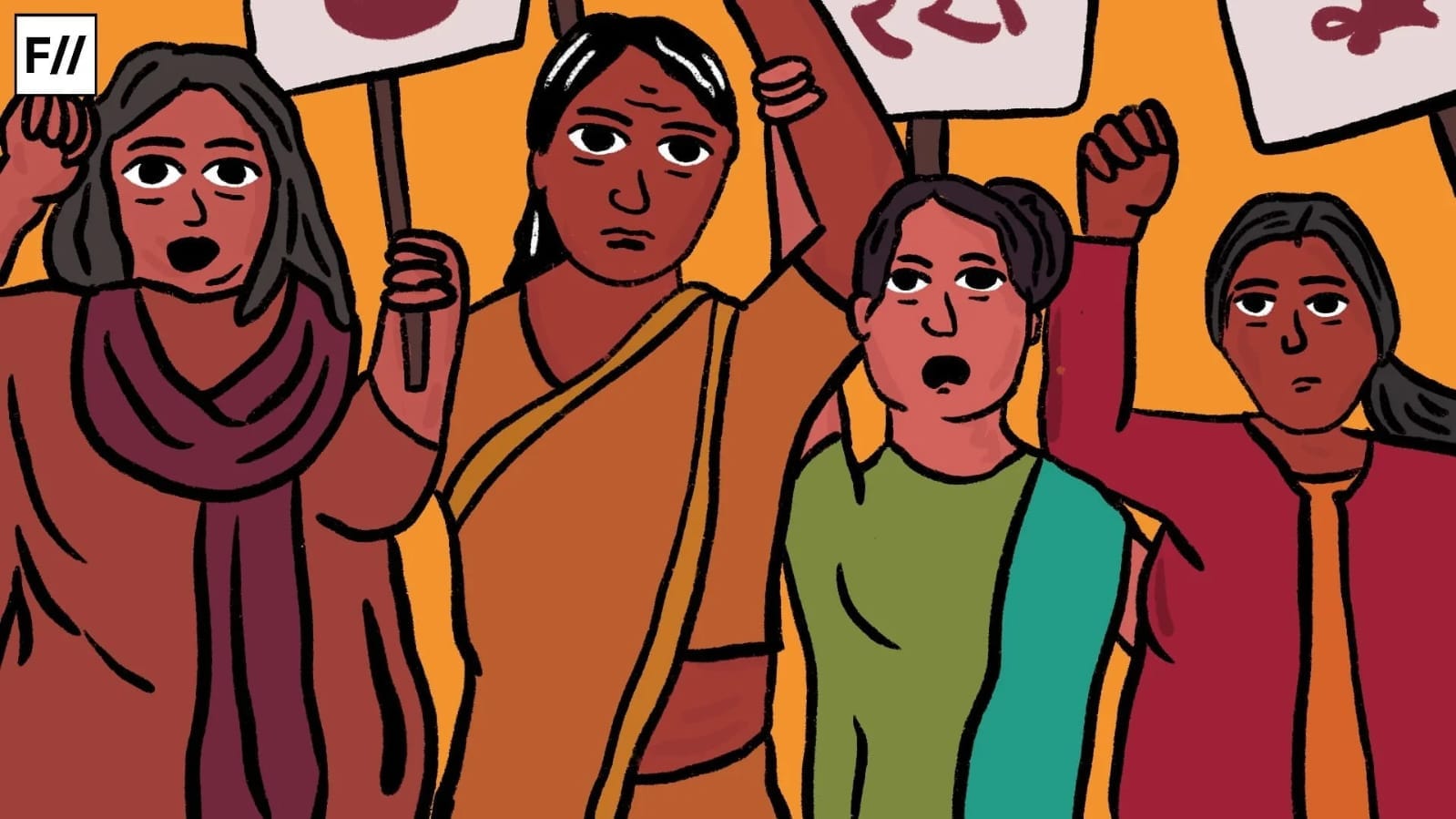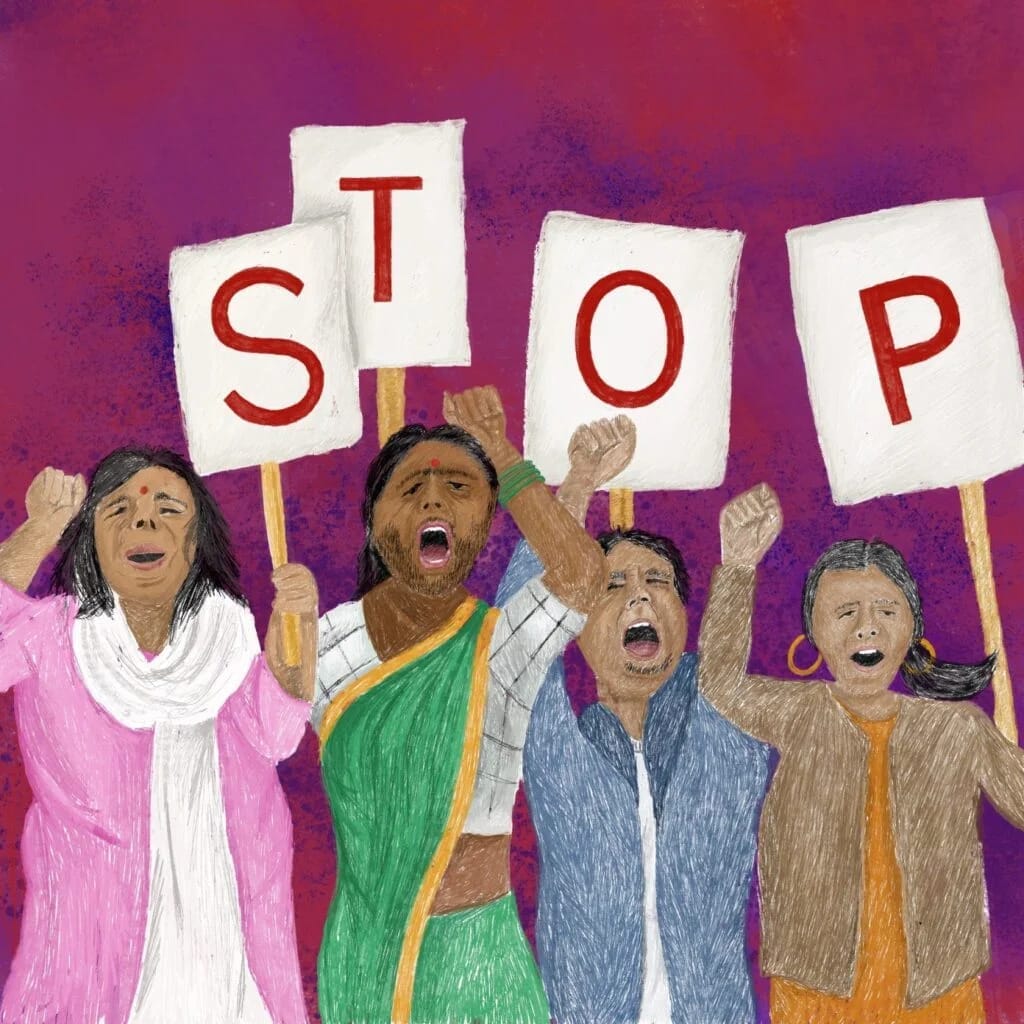Trigger Warning: Violence
Udaipur, a small city in the southernmost part of the Indian state of Rajasthan, is a popular destination among worldwide travelers for its picturesque lakes, quintessential palaces and glim-rich markets. And why not? The beautiful city, known as the Jewel of Mewar, has remarkably unmatched history, culture, landscape and craft, primarily influenced by its founder Maharana Udai Singh. While people suggest it is a two-day vocational spot, a real traveler may spend at least a month exploring all the city’s hidden gems.
One of the most interesting explorations can be: going on a shopping spree while walking in remotely acquainted alleys, that may not fit more than one two-wheeler, and perhaps can display a thousand words about the city’s ancient architecture and its balance of heritage and contemporary art in the form of showcasing folklore dance and music, unusual pottery, delicate jewelry, terracotta and brassware sculptures.
Sometimes these houses have screeching sounds. To dive deeper into this whining, it is possible to hear women clamoring their chests off.
Other than the flurry marketplace, walking in these passageways also takes the traveler to mysterious houses. Sometimes these houses have screeching sounds. To dive deeper into this whining, it is possible to hear women clamoring their chests off. This is usually experienced during Navaratri: an annual Hindu festival celebrated – for almost 10 days – to offer tribute to goddess Durga.

During the festival, many women in their houses claim to possess the spirit of the goddess. To make this a practice of ritualistic ceremony, a 30-40 minute ceremony is carefully constructed in houses where women claim, ‘mere andar maata aa gayi hai‘ (I have been possessed by the spirit of the goddess). They shout, scream, and in some cases beat themselves and the entire kin (family members and neighbours) only watching the whole act until the goddess “dissipates”.
Yes, this is how Udaipur city of Rajasthan commemorates traditional (superstitious) practices. While the narrative is personal and based on a travel story, many reports in the past few years have documented incidents of harassment, sexual and physcial violence, mental torture and ostracism against women in the name of superstition. These incidents have been reported in numerous districts of Rajasthan.
Torture justified in the name of witch-hunting
According to a report by IndiaSpend.com – India’s first data journalism platform – a woman, in her mid-forties, was labelled as a witch by her nephew, physically assaulted and eventually forced to leave her house in the Bhilwara district of Rajasthan. The culprit pulled the woman by her hair asserting her “as a witch” for spreading “bad energy” in the house. In a similar incident, a 73-year-old woman was painted black and paraded naked on a donkey by her family and fellow natives in Rajasthan’s Rajsamand district citing “witchcraft” following her nephew’s suicide. According to the report, when the district police found the body of the woman, she was without clothes in a bushy area, and her family members were locked inside her home.
Sexual violence: faith healer or abuser?
According to a report by the Scroll.In published in April 2023, a faith healer – known as bhopa in traditional Rajasthan – sexually abused a 32-year-old woman for almost a week after the culprit branded the latter as a “witch” for not being able to “give birth to a boy” in Chittorgarh district. As per the report details, the culprit used to yell at the woman, and inappropriately touch her breasts for a consecutive time, threatening her to visit him often. The gruesome act of violence does not end here. The next time the woman visited the abuser, he reportedly tried to penetrate her with his finger and claimed he was ‘checking what is the problem down there to understand why she can not give birth to a boy‘.

Subsequently, the woman informed her husband about the sexual abuse. Only then did the family cease to send the woman to the faith healer. However, the woman failed to get justice against the brutal sexual crime as her kin members did not offer her the slightest support to report the matter to the police citing family “respect”. In her words, ‘Nobody knows what he did with me. We never dared to go to the police for the sake of the family’s respect.‘
Brutality in south Rajasthan’s tribal area
In February 2024, a woman was reportedly stripped naked, hitched to a cot and brutally thrashed by her husband, his first wife and mother-in-law after being labeled as a “witch”. The incident was reported in the Banswara district of south Rajasthan – which is recognised as a tribal area. The horrific case came to light after the woman’s father coincidentally reached the in-laws’ house where she was kept starved in an inhumane condition in the Motagaon village area of the district. The woman was rescued by her father and offered enough strength to report the matter to the police.
In her complaint, the woman said the perpetrator (husband) had married her under the Nata Pratha (custom). The abusive behavior started when his first wife’s son fell sick. It was during this time, he and his family branded her as a witch and threatened her to cure the son. ‘I was accused as a witch. They held my hands, and my husband took off my clothes and beat me after being tied to a cot,‘ narrated the woman.
Dayan Pratha (witch-hunting tradition) in Rajasthan
Witch-hunting tradition, commonly known as Dayan Pratha, in many parts of Rajasthan, can be described as a supremely primitive and heinous practice that labels women as witches thereby accusing them of any misfortune in the family and many cases of not being able to give birth to a “boy”. One of the primary reasons that the malpractice continues to be reported in today’s world is blind belief in faith healers – mostly a position dominated by men in rural Rajasthan – to whom villagers go to seek solutions for the family.

The blind faith in religion and the concept of man-made faith healers has reportedly killed seven women in the state between 2016 to 2022, citing witchcraft. According to a similar report by The Hindustan Times published in 2020, as many as 72 cases of witchcraft were reported in Rajasthan wherein women were subjected to physical assaults and molestation. The highest number of cases – 25 – were reported from Bhilwara district, followed by Udaipur (15), Ajmer (5), Dungarpur (4), Banswara (4) and Rajsamand (4).
The report also claimed that 86 sorcerers (bhopas) were apprehended on charges of physically and sexually assaulting women in the name of the witch-hunting tradition. While the report claimed 72 cases, according to Meghwanshi, Director of Dalit Adivasi Ghumantu Adhikar Manch (DAGAR), ‘The number of women tortured in the name of witchcraft, in reality, is even more.‘
Rajasthan Prevention of Witch-Hunting Act 2015
Rajasthan introduced the State Prevention of Witch-Hunting Act that came into force in 2015 describing witchcraft as a ‘supernatural or magical power with evil intention to call up spirits or cast spells or discover the whereabouts of stolen goods and includes such other similar practices,’ giving the malpractices jargons such as “Tona-Totaka”, “Tantra-Mantra”, “Jadu-Tona”, “JhadPhunk”.
According to the law, calling oneself a witch or sorcerer is a crime, and if a person claims to be one, the person is subjected to be punished with three years of imprisonment.
According to the law, calling oneself a witch or sorcerer is a crime, and if a person claims to be one, the person is subjected to be punished with three years of imprisonment. The law further claims that if someone dies due to witchcraft, whoever is involved in the malpractice will face life imprisonment, starting from seven years.
Whoever is found guilty of feeding women uneatable things will face apprehension for up to three years and a penalty of Rs. 50,000. Despite many stringent clauses, the reported cases of witch-hunting in largely rural parts of Rajasthan display the laxity of the state government, taking away the basic rights of women including the right to exist and the right to live.

Rajasthan, a state known for its rich monuments, culture, food, landscapes, markets, kings and queens, fails to offer basic rights to its women in today’s ultra-progressive world in the name of religion, unscientific faith, superstition and black magic. There must be stringent measures which are implemented strictly to curb such heinous practices of witch hunting.




